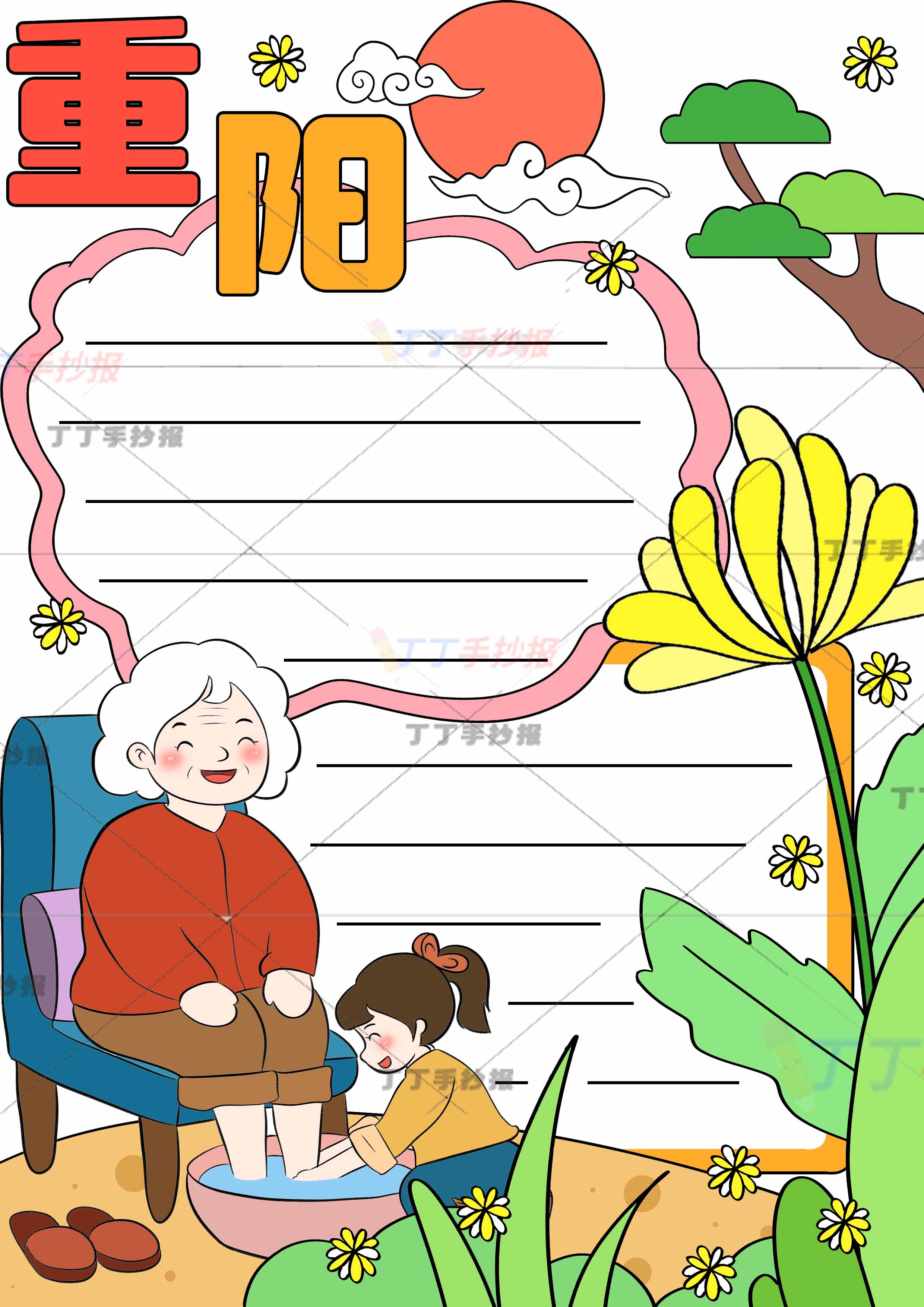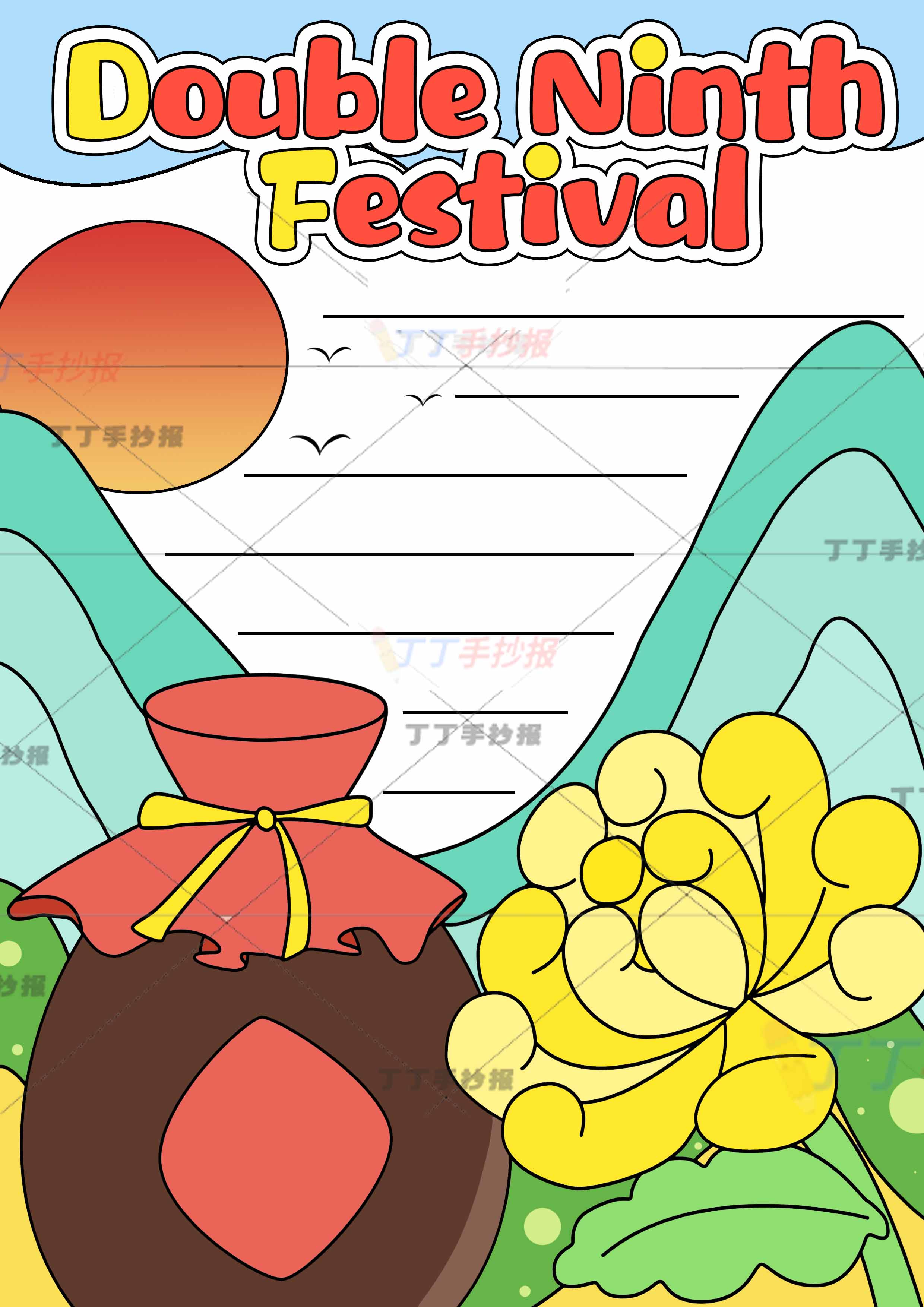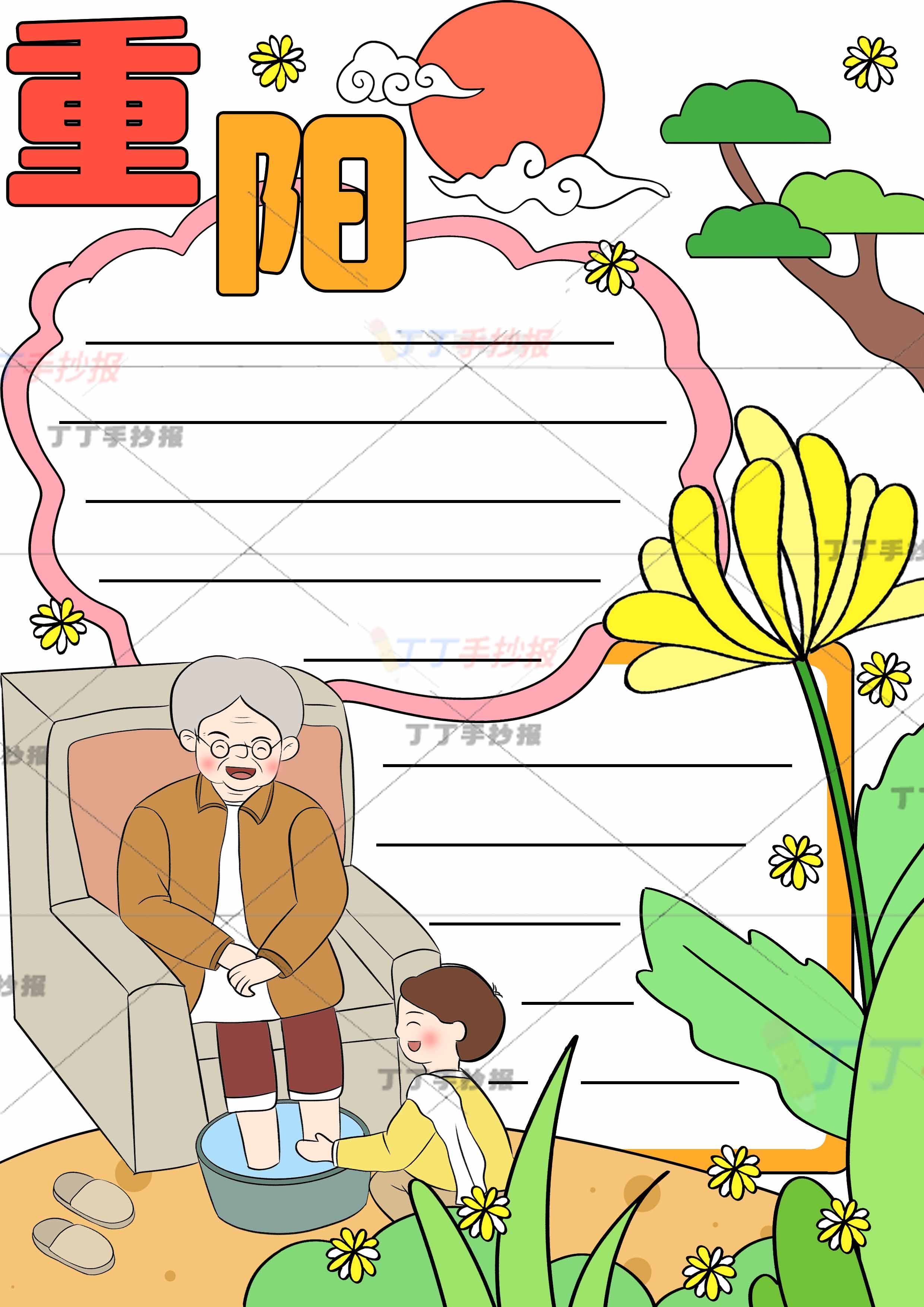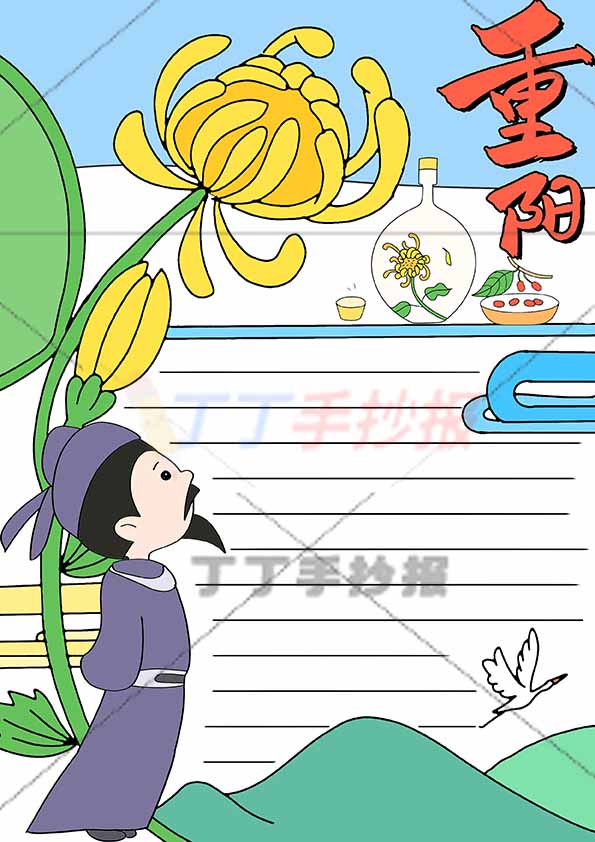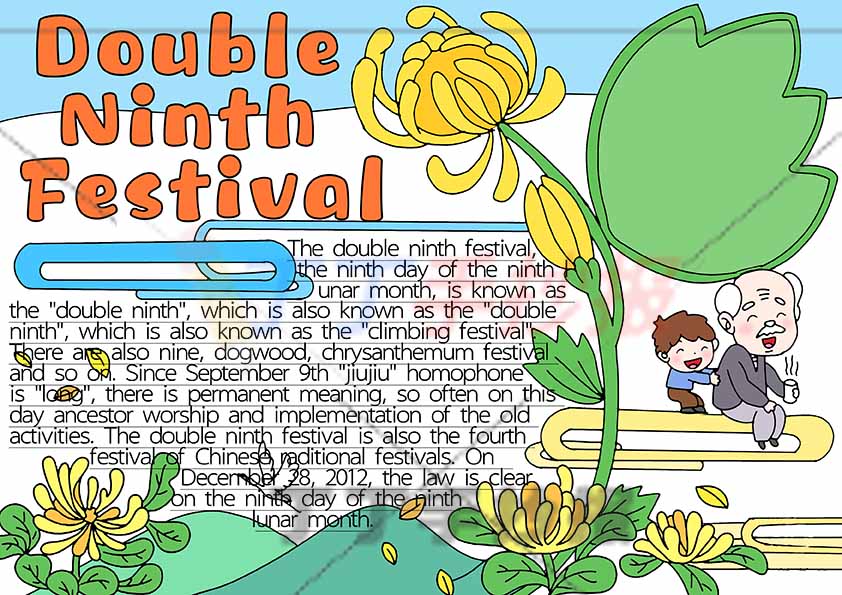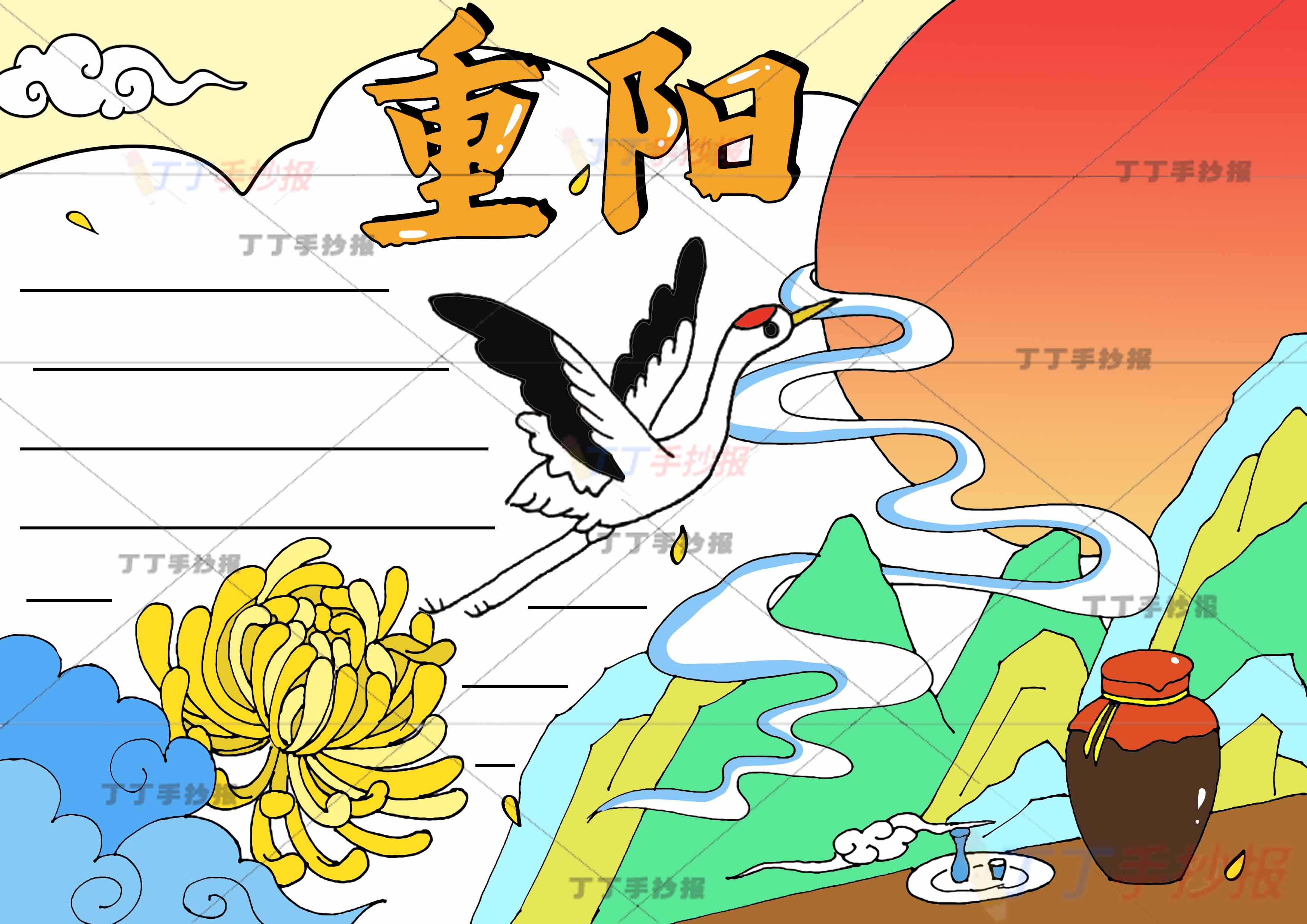重阳节英语手抄报女孩老人
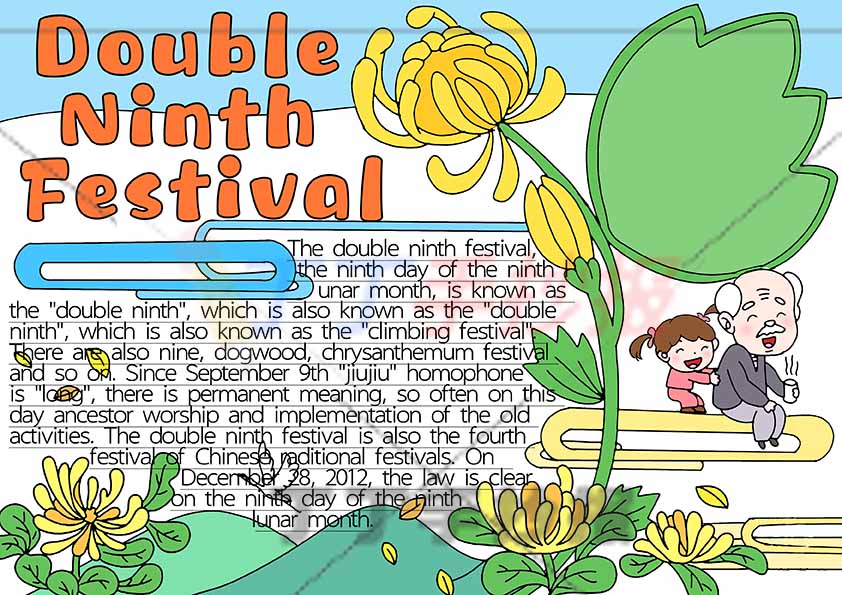
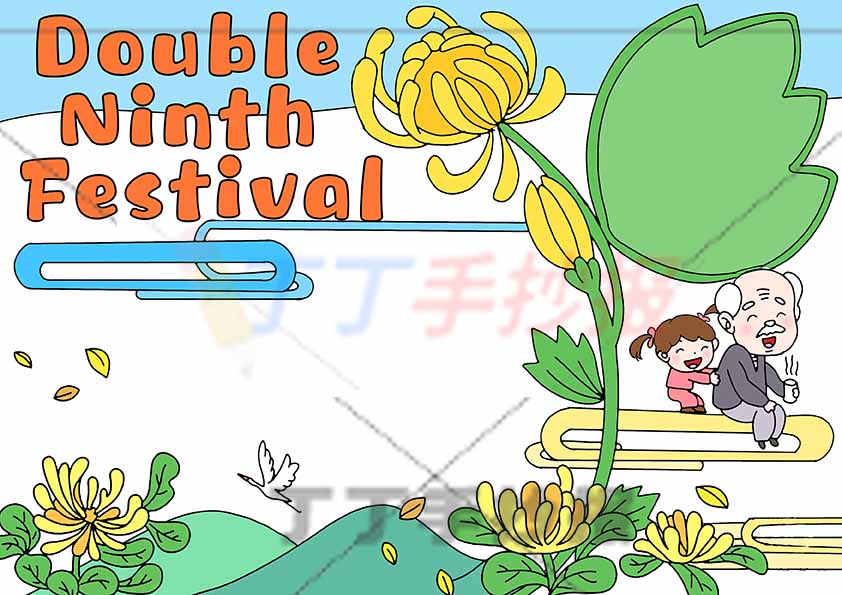
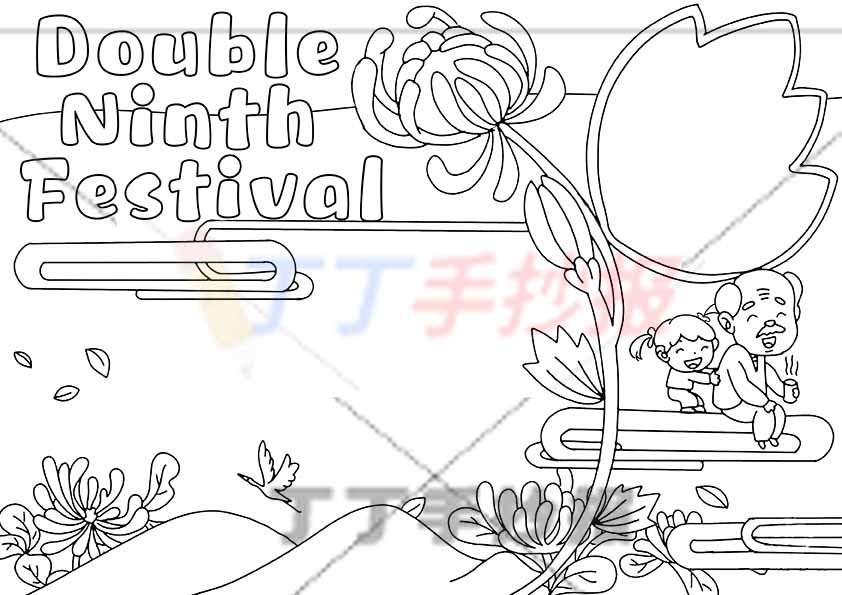
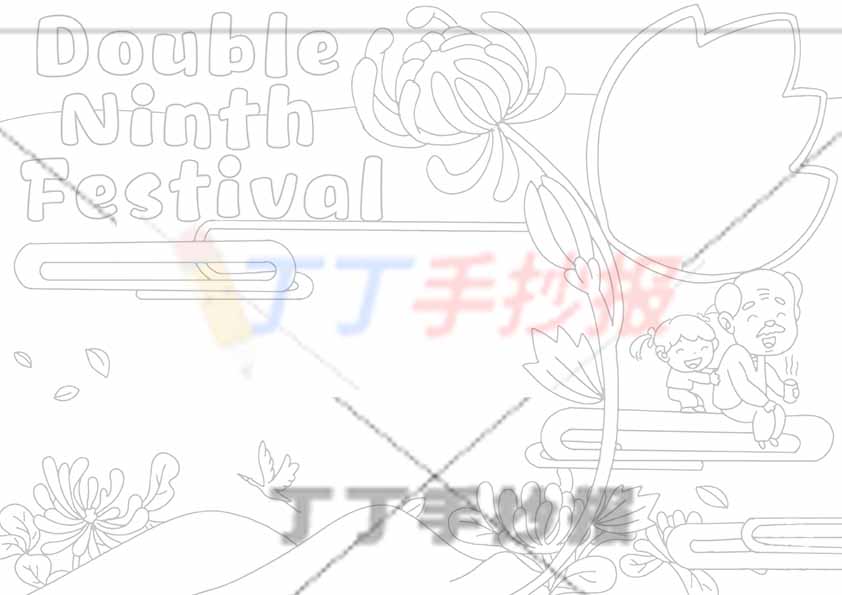
一、重阳节英语介绍
The double ninth festival, the ninth day of the ninth lunar month, is known as the "double ninth", which is also known as the "double ninth", which is also known as the "climbing festival". There are also nine, dogwood, chrysanthemum festival and so on. Since September 9th "jiujiu" homophone is "long", there is permanent meaning, so often on this day ancestor worship and implementation of the old activities. The double ninth festival is also the fourth festival of Chinese traditional festivals. On December 28, 2012, the law is clear on the ninth day of the ninth lunar month.
重阳节,农历九月初九,二九相重,称为“重九”,民间在该日有登高的风俗,所以重阳节又称“登高节”。还有重九节、茱萸、菊花节等说法。由于九月初九“九九”谐音是“久久”,有长久之意,所以常在此日祭祖与推行敬老活动。重阳节与除、清、盂三节也是中国传统节日里祭祖的四大节日。2012年12月28日,法律明确每年农历九月初九为老年节。
二、重阳节习俗英语介绍
The Double Ninth Festival, the annual the 9th day of the ninth month of the Chinese lunar calendar day, is a traditional festival of the Chinese nation.
重阳节,为每年的农历九月初九日,是中华民族的传统节日。
In ancient times, there were customs of climbing high to pray for blessings, visiting chrysanthemums in autumn, wearing dogwood, offering sacrifices to gods and ancestors, and feasting for longevity.
古时民间在重册首烂阳节有登高祈福、秋游赏菊、佩插茱萸、祭神祭祖及饮宴求寿等习俗。
So far, it has added the connotation of respecting the elderly, enjoying the feast high on the day of the Double Ninth Festival, and being grateful to the elderly.
传承至今,又添加了敬老等内涵,于重阳之日享宴高会,州漏感恩敬老。
Appreciation of the autumn and gratitude for respecting the elderly are two important themes of today's Double Ninth Festival.
登高赏秋与感恩敬老是当今重阳节日活动的两大重要主题。
1.go to the high 登高
Chongyang Festival first has the custom of climbing high. In September, the golden autumn, the weather is high and refreshing. This season, climbing high is expected to achieve the goal of relaxation and happiness, fitness and disease elimination.
重阳节首先有登高的习俗,金秋九月,天高气爽,这个季节登高远望可达到心旷神怡、健身祛病的目的。
2. eat Chongyang cake 吃重阳糕
The custom of eating Chongyang cakes is related to climbing. Gaohe Cake homonym, as a festival food, was originally intended to celebrate the harvest of autumn grain and enjoy the new grain. After that, the people had the auspicious meaning of climbing the mountain to eat cakes and taking steps to climb the
mountain.与登高相联系的有吃重阳糕的风俗。高和糕谐音,作为节日食品,最早是庆祝秋粮丰收、喜尝新粮的用意,之后民间才有了登芹敬高吃糕,取步步登高的吉祥之意。
3.Chrysanthemum 赏菊
On the Double Ninth Festival, there has always been the custom of enjoying chrysanthemums, so it has been called chrysanthemum festival since ancient times. The lunar calendar is commonly known as the chrysanthemum month in September, and the chrysanthemum conference is held at the festival. Since the Three Kingdoms and Wei Jin Dynasties, Chung Yeung has been drinking and appreciating chrysanthemums for poetry. In ancient Han customs, chrysanthemums symbolize
longevity.重阳日,历来就有赏菊花的风俗,所以古来又称菊花节。农历九月俗称菊月,节日举办菊花大会,倾城的人潮赴会赏菊。从三国魏晋以来,重阳聚会饮酒、赏菊赋诗已成时尚。在汉族古俗中,菊花象征长寿。
4.drink chrysanthemum wine 饮菊花酒
On the Double Ninth Festival, the traditional custom of drinking chrysanthemum wine is in China. Chrysanthemum wine is regarded as the "auspicious wine" in ancient times, which is "Chongyang must drink" and "dispel calamity and pray for blessing".
重阳佳节,我国有饮菊花酒的传统习俗。菊花酒,在古代被看作是重阳必饮、祛灾祈福的“吉祥酒”。
5.Cornus officinalis 佩茱萸
In ancient times, the custom of 99 Cornus officinalis was also popular, so it was also called "Zhuyu Festival". Fructus Corni can be used to make wine, keep fit and remove disease. The introduction of Fructus Corni and hairpin chrysanthemum was very common in the Tang Dynasty. Fructus Corni has strong fragrance, which has the function of repelling insects, removing dampness and inducing wind evil, and can eliminate food accumulation and treat cold and heat.
古代还风行九九插茱萸的习俗,所以又叫做茱萸节。茱萸入药,可制酒养身祛病。插茱萸和簪菊花在唐代就已经很普遍。茱萸香味浓,有驱虫去湿、逐风邪的作用,并能消积食,治寒热。
-
上一篇:重阳节英语手抄报男孩老人
- 下一篇:重阳节英语竖版手抄报酒坛菊花

